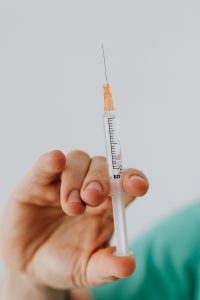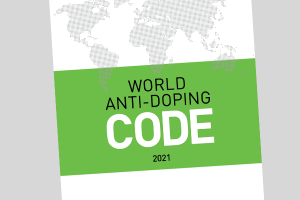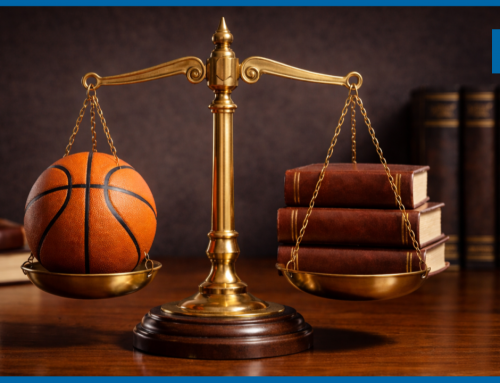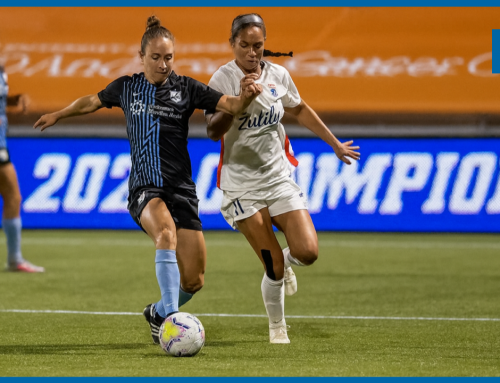Author: Antonio Quintero

Lawyer graduated from the Universidad Metropolitana in Caracas, Venezuela (2007). He studied at the Instituto Superior de Derecho y Economía in Spain, obtaining a Master’s Degree in International Sports Law (2008). He has also completed several postgraduate studies, including: Sports Management in Baseball (Universidad Central de Venezuela), Diploma in Football Coaching (Universidad Deportiva Sur, Comité Olímpico Venezolano, Centro de Estudios e Investigación del Deporte), Diploma in Litigation (Universidad Metropolitana) and a course in expression (Universidad Central de Venezuela).
He is also a member of the South American Rugby Federation and the International Association for Football Lawyers.
Published for Winter – Dávila & Associés in Paris, March 3rd, 2021.
Would you like legal advice on sports law? Do not hesitate to contact us!
📍Other language versions of the article are available:
At the beginning of 2021, the new sanction regime of the World Anti-Doping Agency (WADA) on “substances of abuse” came into force. This regime marks significant changes compared to the system that expired in 2020 by reducing suspensions for the violation of the anti-doping rules. However, the disqualification sanction and the withdrawal of prizes and medals upholds when some of these substances are found during a competition.
Now, let’s take a look at a few concepts to have a better understanding of the subject.
What’s a substance of abuse?
Here are the so-called recreational drugs. They are the substances of abuse according to the list established in 2021:
- Cocaine
- Heroin (Diamorphine)
- Ecstasy (MDMA)
- Marijuana (THC)

What’s the new penalty regime for the use of these substances?
If they are used out-of-competition but aren’t found during the competition testing, then there are no sanctions.
If they are used during the competition, the sanction is the same as it was before the new regime. For example, for cocaine, it usually is a four-year ban. For heroin, ecstasy and marijuana, the ban is usually two years and is often accompanied by disqualifications and the loss of awards and medals won. It concerns a new classification of substances that includes those that are frequently taken by society outside the context of sport.
The major change is that if the drugs are taken by the athletes while they are not competing or for recreational reasons and not intended for cheating (to improve the athlete’s performance) and if traces are found during the competition, the athlete will be suspended for three months. And if the athlete follows a detoxification program, the suspension is reduced to one month. As previously mentioned, what remains unchanged is the disqualification of results and the loss of awards and medals.
What are the criteria to insert a drug on the list of prohibited substances?
To those who argue that “marijuana, heroin, ecstasy and cocaine shouldn’t be penalized in any way because they don’t contribute to the performance of the athlete”, clarification is needed.

https://www.wada-ama.org/en/media
It should be noted that each year an expert committee within WADA evaluates the inclusion of many substances based on three criteria:
– Whether the substance harms the athlete’s body.
– Whether the substance enhances the athlete’s performance.
– And whether it is ethically correct to consume this substance.
If the substance meets two of these criteria, then it is inserted in the prohibited substances list. In addition, many tests are required to determine whether or not a drug affects the athlete. This is more of a scientific debate than a legal or doctrinal one. Therefore, to speak without scientific evidence is to speak without foundation.
Finally, it should be pointed out that the technology of anti-doping controls is constantly improving, which means that traces of substances can be found more and more. We can therefore conclude with specific advice to athletes: avoid embarrassment, damage to your reputation, loss of money and success, long expensive and lawyer-filled cases. Go for the easier solution: DON’T TAKE DRUGS!
If you liked this Sports Law topic, we invite you to share the article, comment on it and also to visit the rest of publications in the social networks and platforms of Winter – Dávila et Associés
If you would like legal advice do not hesitate to contact us! (email: contact@wdassocies.com)
Original language of the article: Spanish








Leave A Comment